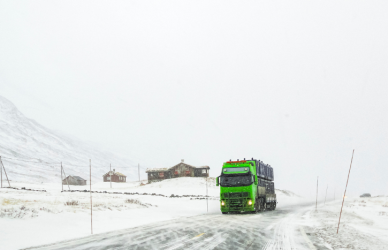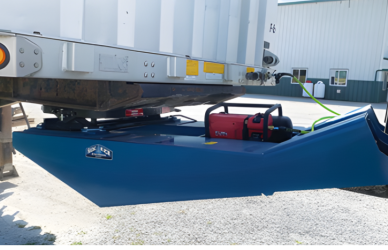Multiple states have declared emergency measures following the devastating impact of record snowfall and frigid Arctic temperatures caused by winter storm Blair. The Midwest alone has seen snowfall amounts as high as 18 inches, while winter storm warnings remain active from the Ohio Valley through the Mid-Atlantic region as of Monday, January 6.
Emergency declarations have been issued in Kentucky, Missouri, and New York, including waivers to assist with the transport of crucial heating fuels and other essential products.
Missouri’s Emergency Declaration
Missouri has enacted an emergency exemption specifically aimed at supporting the delivery of residential heating fuels. Under this declaration, vehicles involved in transporting heating fuels are temporarily exempt from federal hours-of-service regulations until Sunday, January 12.
This limitation applies exclusively to residential heating fuels; no other fuel types or petroleum products fall under this waiver.
A statement within Missouri’s emergency declaration highlights the urgency of the situation, citing potential damage caused by a mix of severe winter weather including “rain, freezing rain, snow, sleet, ice, and low temperatures, impacting communities throughout the state.”
The waiver applies to all interstate, state, and local county roads. Additionally, drivers operating under this order are not required to carry a physical copy of the emergency declaration during transport.
Kentucky’s Widespread Relief Actions
Kentucky’s emergency declaration was triggered by an extended period of below-freezing temperatures, which significantly impacted daily life and fuel availability within the state. This declaration is valid until Thursday, January 16.
Relief measures enable exemptions from hours-of-service regulations and weigh station stops for vehicles transporting propane, fuel oil, and kerosene. Additionally, essential supplies—like food, water, medical supplies, non-alcoholic beverages, and livestock or poultry feed—are included under the emergency provisions.
The directive allows essential goods and relief services to be expedited, ensuring residents in the affected regions receive the support they need during these challenging conditions.
New York Addresses Severe Statewide Impact
New York State has declared an emergency order to address compounded issues arising from the severe winter storm paired with significant supply chain challenges. These conditions have disrupted the timely delivery of critical heating fuels required by households, businesses, power plants, and customers dependent on alternative or interruptible sources of fuel.
The emergency order modifies hours-of-service regulations for truck drivers to facilitate faster transportation of vital supplies. Below are the specific changes to the standard regulations:
- The 70-hour on-duty limit in eight days has been extended to 84 hours.
- The 60-hour on-duty limit in seven days has been increased to 74 hours.
- The 14-hour daily work limit has been temporarily modified to 16 hours.
- The 34-hour restart provision is reduced to 24 hours.
- Time spent waiting in a parked commercial vehicle at loading or unloading sites will no longer be counted as “on-duty” time for compliance calculations.
These changes aim to help alleviate delivery delays and ensure supplies are distributed efficiently. The emergency measures in New York will remain in effect through today, January 10.
Source: Land line











